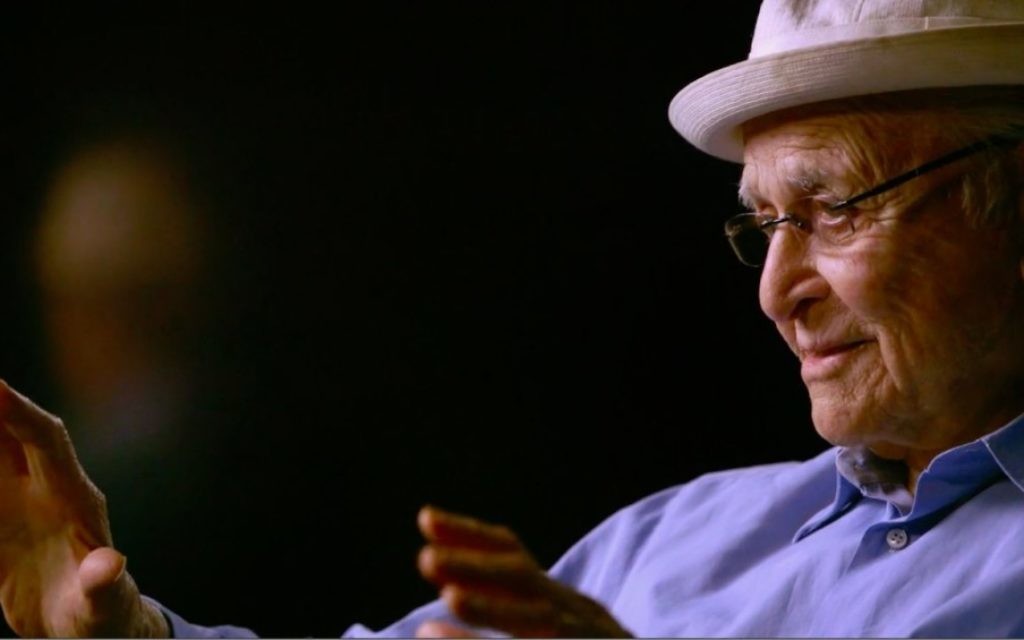AJFF: Lear Helped Make Better Version of Us
After years of revolutionizing programming by creating flagship shows including “All in the Family,” “Good Times,” “Maude,” “The Jeffersons,” and “Sanford and Son,” Norman Lear stands on his own in TV history.
Directors Heidi Ewing and Rachel Grady allow his legacy to do the same in “Norman Lear: Just Another Version of You,” a comprehensive documentary on the life and work of the 94-year-old actor, writer, producer, director and sitcom creator. Reminiscences by Lear and cameo commentary from the likes of George Clooney and Jon Stewart, mixed with carefully selected clips, reveal the intent and activism behind Lear’s work.
In today’s environment of political correctness, these shows might be censored. But Lear’s characters worked in 1970s America because their issues and stereotypes were real, and we needed to see them in those social and political times.
Get The AJT Newsletter by email and never miss our top stories Free Sign Up
Archie Bunker was your bigoted neighbor, father-in-law or co-worker. Edith was the submissive wife. Michael “Meathead” Stivic was the hippie son-in-law or boyfriend next door.
Maude mirrored the women’s movement and took on groundbreaking issues. In the controversial “abortion episode,” which brought in 65 million viewers and 17,000 letters, the words “abortion” and “vasectomy” made their prime-time TV debut.
Lear put equal rights in the spotlight as well. Actor John Amos said “Good Times” brought us the “first black family on TV,” followed by “The Jeffersons,” representing “the American dream for black people.”
The documentary details the background that shaped Lear, from seeing, at age 9, his father handcuffed and taken to jail, to landing with his grandparents and wanting to be “a good provider,” to earning a scholarship to Emerson College before enlisting in the Army after the Japanese bombed Pearl Harbor.
Before an appearance on “The Daily Show,” Stewart introduces Lear as “the most influential producer in the history of television,” speaking of how he learned to process things “through the lens of comedy.”
Regarding his “childlike view of the world,” Lear says, “I have never been in a situation in my life, however tragic, where I didn’t see some comedy.”
While the documentary might stretch a little too long at the end, it does a good job of revealing the man who has entertained and educated generations with his special brand of realism through satire and activism through comedy.





comments